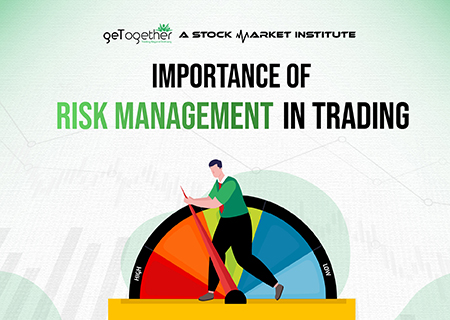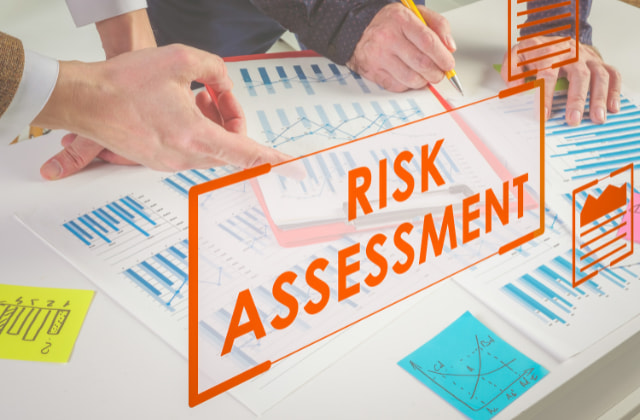Why Organizations Should Focus on the Importance of Risk Management Now More Than Ever
Why Organizations Should Focus on the Importance of Risk Management Now More Than Ever
Blog Article
Discovering the Relevance of Risk Management for Effective Decision-Making Techniques
In the detailed world of business, Risk Management emerges as a vital variable in the decision-making procedure. The capability to identify possible threats and possibilities, and plan accordingly, can spell the distinction in between success and failing.
Recognizing the Principle of Risk Management
Risk Management, an important component in decision-making, is typically misinterpreted or oversimplified. Normally, it refers to the recognition, analysis, and prioritization of threats to decrease, monitor, and control the possibility or influence of unfavorable occasions. It's not simply concerning avoiding unfavorable end results, yet also regarding acknowledging possible chances. Risk Management includes structured and disciplined techniques, making use of information and informative assessments. It needs a detailed understanding of the organization's context, objectives, and the possible threats that might prevent them. From financial unpredictabilities, lawful obligations, tactical Management mistakes, to mishaps and natural disasters, it addresses numerous risks. Importantly, efficient Risk Management is not stagnant; it's a constant, forward-looking procedure that advances with transforming scenarios.
The Duty of Risk Management in Decision-Making Processes
In the realm of calculated preparation and company procedures, Risk Management plays an essential duty in decision-making procedures. Risk Management hence comes to be a vital device in decision-making, aiding leaders to make informed options based on a detailed understanding of the risks involved. Risk Management serves as a crucial element in the decision-making processes of any type of company.

Just How Risk Management Enhances Strategic Planning
In the context of calculated preparation, Risk Management plays a crucial duty. Starting with the recognition of possible dangers, it even more expands to the implementation of Risk reduction procedures. The duty of Risk Management is dynamic yet not static, as it demands continuous surveillance and adjusting of approaches.
Determining Possible Risks

Applying Risk Reduction
Having actually developed the value of recognizing possible risks, the following action is to discover Risk mitigation. This procedure entails creating and applying methods to take care of determined dangers properly. It is a critical element of tactical planning as it improves decision-making by decreasing prospective negative outcomes. Risk mitigation techniques can vary from Risk avoidance, Risk transfer, to risk decrease. Each approach must be tailored to the specific Risk, considering its possible influence and the organization's Risk tolerance. Efficient Risk reduction requires a deep understanding of the Risk landscape and the prospective impact of each Risk. This understanding allows companies to prioritize risks and designate resources successfully, making sure that one of the most considerable risks are resolved first.
Monitoring and Adjusting Techniques
Though Risk reduction is an important action in tactical preparation, continual tracking and modification of these techniques is equally crucial. This ongoing process permits organizations to recognize brand-new threats and reassess existing ones, guaranteeing the applied methods remain effective in the ever-changing service setting. It additionally supplies an opportunity to why not try these out review the success of the Risk Management actions, enabling changes to be made where necessary, additional enhancing critical preparation. Effective tracking and change need making use of analytics and key performance indications (KPIs) to determine effectiveness. These tools provide important data-driven insights that can educate strategic decision-making. Tracking and changing Risk Management approaches is a vital component for boosting an organization's resilience and calculated preparation.
Case Studies: Successful Risk Management and Decision-Making
Worldwide of business and money, effective Risk Management and decision-making frequently act as the columns of flourishing enterprises. One such entity is an international oil firm that alleviated monetary loss by hedging against changing oil costs. In another instance, a technology startup thrived by identifying and approving high-risk, high-reward techniques in a volatile market. An international financial institution, confronted with governing unpredictabilities, effectively navigated the scenario with positive Risk evaluation and dynamic decision-making. These cases highlight the worth of sharp Risk Management in decision-making procedures. It is not the absence of Risk, but the Management of it, that commonly differentiates successful firms from not successful ones. These situations highlight the important duty of Risk Management in strategic decision-making. importance of risk management.
Devices and Techniques for Efficient Risk Management
These devices, such as Risk registers and warm maps, aid in determining and examining prospective dangers. Risk action methods, a crucial element of Risk Management, discover this involve accepting, avoiding, transferring, or mitigating risks. With these methods and tools, decision-makers can browse the complicated landscape of Risk Management, thereby assisting in notified and effective decision-making.
Future Patterns in Risk Management and Decision-Making Methods
As we check out the huge landscape of Risk Management, it comes to be noticeable that the methods and tools used today will certainly remain to progress. Future patterns point in the direction of an increased dependence on innovation, with synthetic intelligence and equipment discovering playing considerable functions. These technologies will certainly make it possible for organizations to predict possible dangers with higher accuracy and make even more educated decisions. Additionally, there will certainly be an expanding emphasis on resilience, not just in handling risks yet additionally in getting better from negative scenarios. The idea of Risk society, where every member of an organization is mindful and included in Risk Management, will certainly acquire extra importance. These trends herald a more proactive and comprehensive approach in the direction of Risk Management and decision-making.
Conclusion

Risk Management thus ends up being a crucial tool in decision-making, aiding leaders to make educated options based on a detailed understanding of the threats included. Risk mitigation approaches can range from Risk evasion, Risk transfer, to run the risk of decrease (importance of risk management). Reliable Risk mitigation requires a deep understanding of the Risk landscape and the possible effect of each Risk. Risk reaction techniques, a crucial element of Risk Management, entail approving, preventing, moving, or mitigating risks. The concept of Risk culture, where every participant of a company is aware and browse around this site entailed in Risk Management, will certainly obtain extra prestige
Report this page